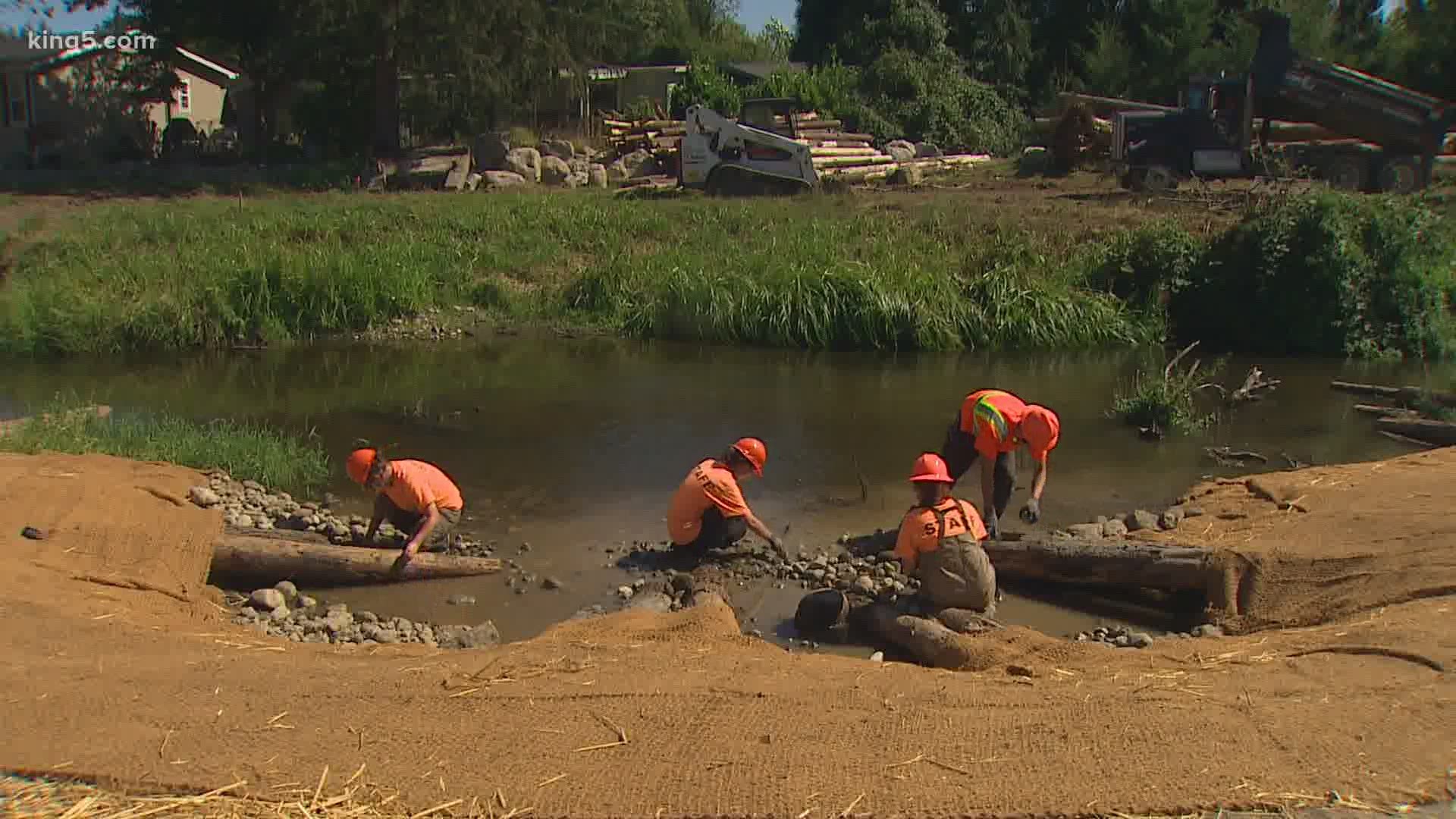REDMOND, Wash. — A project is underway at a neighborhood in Redmond which will rewild a section of stream, and improve the habitat for endangered salmon.
Bear Creek, which runs through Friendly Village, was identified by the state Department of Ecology as having several issues that were hindering salmon habitat. Now, the nonprofit Adopt A Stream Foundation is bringing nature to a section of the creek so it is more habitable for salmon, adding logs for natural debris and reworking the surrounding flood plain.
“A lot of times in these urban areas, you lose that riparian zone around the stream,” said Adopt A Stream ecologist Abbie Abramovich. “So we’re out here trying to create that self-sustaining system, so we don’t have to continue being out here every summer.”
The creek was more straight and constrained when the project began, Abramovich said. But salmon thrive in the nooks and crannies the chaos of nature provides – overhanging and downed trees and calm pools.
“Salmon need cover and refuge, so they need large woody debris in the streams to hide from predators, and we’re also adding pools for juvenile salmon,” Abramovich said.
So Thursday, crews used heavy machinery to jumble logs into the water, while others pulled on rubber boots, and redistributed river rocks in the shallows.
Hay cover was put down on the banks to prevent erosion before native plants are established.
Bear Creek was found to be important for Chinook salmon, which are endangered, though other types of salmon also come through the waterway. Chinook are also the food source for the struggling Southern Resident killer whales, which is why Abramovich said every section of stream improved helps.
“[Salmon] have got a hard job swimming upstream, and we want to make it as easy as possible, so we can recover their population before it’s too late,” she said.
The project is backed with a grant from the Salmon Recovery Funding Board. Abramovich noted that usually, such an undertaking would include crowds of volunteers. But COVID-19 halted those plans and more of the work fell to a small but dedicated team of interns.
Active work will continue into September, and the team will return a few months later to plant in the area.
They also want people to realize and remember that salmon rely on urban creeks just like this one to reproduce, not just the wild rivers in the mountains.

